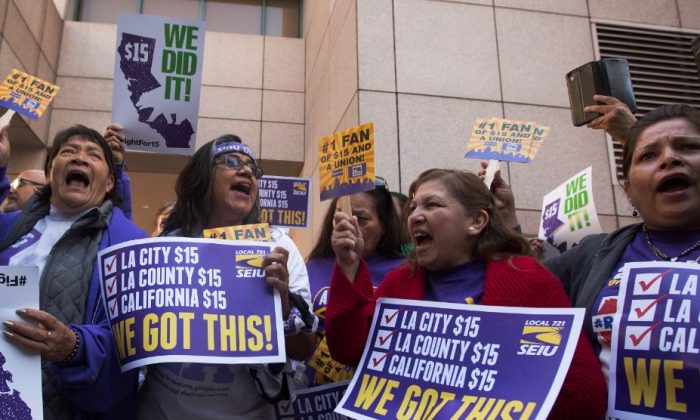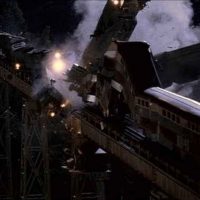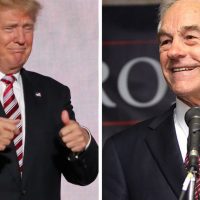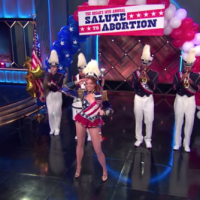Few government measures are crueler to the poor and disadvantaged in society than minimum wage laws.
Promoted by self-righteous socialists and fawning, gutless “conservatives” as a way to help the poor, minimum wage mandates demonstrably result in higher unemployment, stifle small business, and trap the most vulnerable into a life of dependency and unemployment.
Ironically, the very same socialists who push for minimum wage laws later cite the poverty and suffering of small businesses resulting from those minimum wage laws as a way to discredit the free market—even though minimum wage laws are anti-free market.
To understand the damage that can be fully attributed to minimum wage laws, it’s necessary to understand the pricing mechanism in a free-market context. In a completely free market, the price of goods and services is determined solely by the law of supply and demand.
For example, if there’s a great crop of tomatoes one year, the supply will be abundant, prices will drop, and the public will consume more of them. The low price will signal to farmers to plant fewer tomatoes the following year and, consequently, tomato supply and demand will trend toward equilibrium.
If the tomato harvest is poor and tomatoes are scarce, the price will rise. This will encourage merchants to import tomatoes from other regions and consumers to use fewer tomatoes or use other vegetables in their salads and sauces. The higher prices will also encourage farmers to plant more tomatoes for the next season, resulting in a greater supply and a balancing of supply and demand.
Prices in a free-market system are the signals whereby millions of consumers and producers in any given market can consistently move toward an almost perfect balance of production and consumption. In a free market, there are minimal shortages and minimal wastage through overproduction. The pricing system helps the market function with an almost magical efficiency to the maximum benefit of all involved.
Government Manipulation of Free Market
If the government, however, steps in to fix prices, chaos ensues.
If a “pro-business” government artificially raises the price of pork, for example, to protect the nation’s pig farmers, several things will automatically happen. Firstly, more and more farmers will rush to produce more pork to cash in on the higher prices. This results in shortages of other farm commodities, which drives up their prices to the detriment of consumers. An oversupply of pork soon saturates the market, but fewer consumers want to buy it because of the artificial price. Consumers will turn to beef and chicken, and the pork surplus will worsen further. The government will either pour in more subsidies to keep the market afloat or withdraw support, resulting in a disastrous collapse.
If a “pro-people” government caps private housing rentals to help the poor, disaster soon ensues. Landlords will no longer be able to make a sufficient profit on their substantial investments, so they will divert their money into stocks and shares or other investments. This will create an artificial stock-market boom, inevitably followed by a corresponding crash. The rental housing supply will dry up, resulting in a housing shortage. A few lucky souls will end up living in artificially cheap housing, while most of their fellow renters will have no housing at all or be reduced to living in overpriced, unsanitary hovels. The government may step in, at huge expense, with public housing programs, or it may cease rent controls, resulting in a dramatic price surge until equilibrium is restored.
Read the full story from NoisyRoom.net
Want more BFT? Leave us a voicemail on our page or follow us on Twitter @BFT_Podcast and Facebook @BluntForceTruthPodcast. We want to hear from you! There’s no better place to get the #BluntForceTruth.







